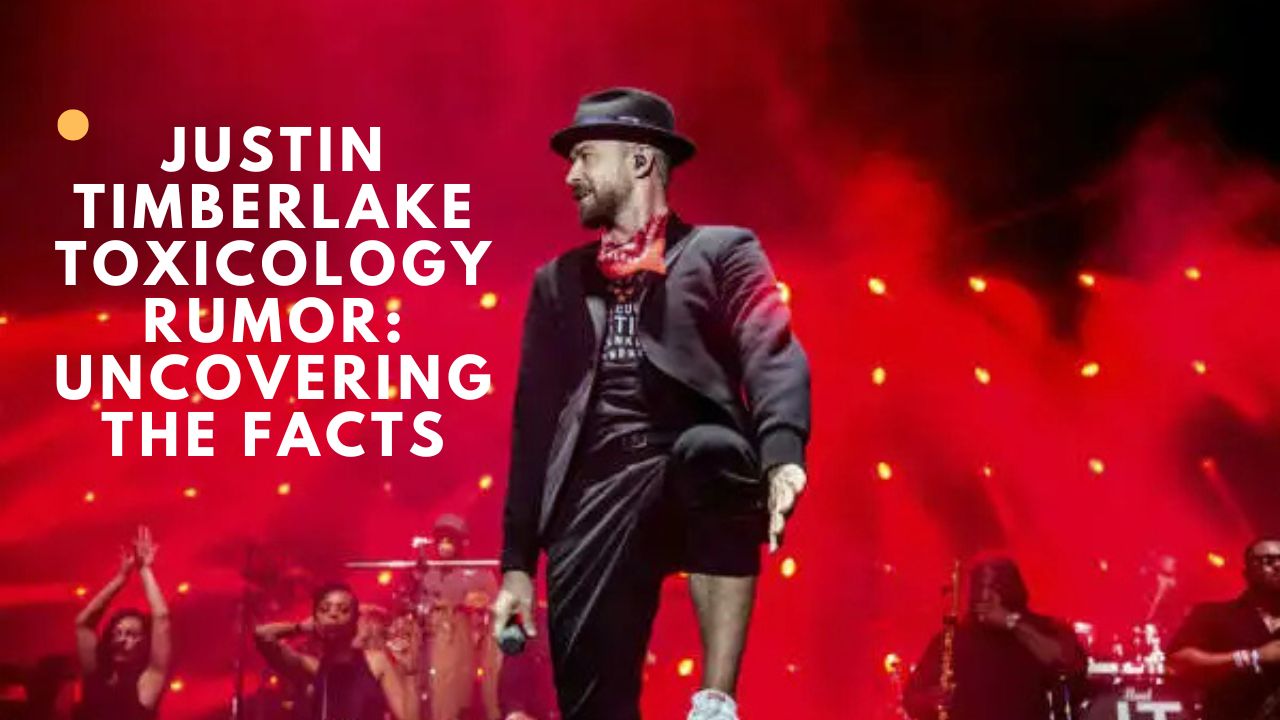The entertainment industry is no stranger to rumors and scandals, with celebrities often at the center of public attention.
In this case, Justin Timberlake has been the subject of persistent rumors regarding toxicology reports.
These rumors have captured public attention despite the lack of concrete evidence, raising questions about media sensationalism and gossip’s impact on celebrities.
Understanding Toxicology in the Context of Celebrity Culture
Toxicology is the scientific study of the adverse effects of chemical substances on living organisms. In celebrity culture, toxicology reports are often mentioned in discussions about substance abuse.
When these reports are associated with high-profile individuals, they can significantly affect public perception. Any suggestion of a toxicology report can spark widespread speculation, regardless of the facts.
What Sparked the Justin Timberlake Toxicology Rumor?
The toxicology rumor about Justin Timberlake traces back to tabloid culture. During the 2000s, the media scrutinized his personal life as Timberlake rose to global fame.
The idea of celebrities facing substance abuse problems has always been a recurring theme in celebrity gossip. Timberlake’s rumored connection to substance use became a major topic due to his high-profile relationships, especially with Britney Spears.
This combination of public interest and media sensationalism kept the toxicology claim alive, even without any credible evidence.
It’s important to note that Timberlake himself has repeatedly denied such allegations. The absence of solid evidence, including any official toxicology report, shows the rumor is unfounded.
Still, many people believe the story because it taps into the public’s insatiable curiosity about celebrities’ struggles.

Timberlake’s Response to the Rumors
In the face of mounting speculation, Timberlake’s response was measured. He denied any wrongdoing and emphasized his commitment to maintaining a healthy lifestyle.
His publicists quickly dismissed the rumors as unfounded and harmful, designed to tarnish his reputation during a crucial career phase.
By focusing on his music and career, Timberlake managed to shift the narrative away from the unfounded allegations.
How Do Media and Social Platforms Fuel the Rumor?
It’s crucial to understand the role of the media in amplifying rumors. The more sensational a story is, the more likely it is to be reported, regardless of its accuracy.
Timberlake’s rumored toxicology report made headlines in the tabloids and news outlets, creating a narrative of scandal and controversy.
The real problem is how these stories spread. Without any verification, the toxicology rumor quickly became a viral sensation online.
The rumor caught fire on social media, often being shared and discussed on platforms like Twitter, Facebook, and Instagram.
Social media’s viral nature means that unverified claims can be spread quickly to millions of users. It doesn’t matter whether there’s any truth to it—the rumor has a life of its own once it takes hold.
Is There Any Real Evidence Behind the Toxicology Rumor?
The most important question you might have is: “Is there any truth to this?” The answer is simple—no.
Despite the persistent media coverage, there’s no credible evidence to suggest that Justin Timberlake was ever involved in substance abuse or any toxicology-related issues.
Timberlake’s team has consistently denied such rumors, and no official toxicology report has backed them up.When you look at the facts, the toxicology story falls apart.
It has always been based on speculation, gossip, and unverified claims. There’s no data to support it. Yet, the narrative persists because media and social platforms have kept the rumor alive.
Comparative Analysis: Similar Celebrity Scandals
The Justin Timberlake toxicology scandal is not unique. Many celebrities have faced similar trials in the court of public opinion.
The media has long used toxicology reports and rumors of substance abuse to sensationalize celebrity lives, from Britney Spears to Lindsay Lohan and Robert Downey Jr.
Such scandals are often blown out of proportion when compared to Timberlake’s experience.
Why Do People Continue to Believe the Rumor?
So, why do these rumors endure even in the absence of evidence? It’s mainly about public perception and human nature. People are fascinated by the personal lives of celebrities.
When a high-profile individual like Timberlake is at the center of a rumor, it’s natural for people to want to know more. The allure of scandal and controversy often outweighs the truth in such cases.
For Timberlake, the toxicology rumor taps into a more profound psychological need to speculate on the behavior of the rich and famous.
The absence of a smoking gun makes the rumor even more irresistible. It becomes more of a “what if” story, which some fans and media outlets keep revisiting.
The Role of Mental Health in Public Scrutiny
It’s easy to forget that rumors like these can seriously impact mental health. Constant scrutiny, particularly when the stories are untrue, can be incredibly stressful for celebrities.
In Timberlake’s case, the toxicology rumor added to the pressure of maintaining a perfect public image. Like many public figures, Timberlake likely experienced stress from constantly having to address or deny false claims.
It would be best if you considered the impact these rumors have on mental health. Celebrities like Timberlake may be under immense pressure to maintain their careers while battling personal issues in private.
Public speculation often makes it harder to separate the truth from the fiction.
What Should You Take Away From This?
The Justin Timberlake toxicology rumor is a powerful example of how media and social platforms can distort reality.
The spread of misinformation is a growing issue, especially when unverified rumors continue to circulate widely. For Timberlake, the story may seem like just another round of celebrity gossip.
However, it’s essential to recognize that false narratives can damage reputations and cause actual harm.
When consuming celebrity news, being skeptical of unverified stories is crucial. Just because a rumor is widely circulated doesn’t mean it’s true.
Timberlake’s toxicology rumor highlights the need for responsible reporting and verifying information before it spreads. By focusing on facts and rejecting sensationalism, you can avoid contributing to the cycle of misinformation.
FAQ’s
How can I spot misinformation about celebrities?
Always verify information from credible news sources. Be skeptical of sensational headlines and check whether the claim has been officially confirmed.
Why do people believe the toxicology rumor if it's not true?
People are often drawn to sensational stories, and the rumor about Timberlake fits into the broader narrative of celebrity scandals. The media's focus on Timberlake's personal life further fuels the myth.
How do social media platforms contribute to the spread of rumors?
Social media platforms allow rumors to spread rapidly. Unverified claims can gain traction quickly as users share them with their followers, even without proof.
Was there ever a toxicology report related to Justin Timberlake?
No credible toxicology report has ever been linked to Justin Timberlake, and his representatives have consistently denied the rumor.
Conclusion
In conclusion, the Justin Timberlake toxicology rumor persists due to the nature of tabloid journalism, viral social media posts, and public curiosity.
However, it’s important to remain skeptical and avoid believing everything you read online. Timberlake’s public denial and lack of evidence demonstrate that this story is nothing more than a rumor.
As you consume media, remember the importance of questioning unverified claims and seeking credible sources. If a story seems too sensational to be true, it probably is. Stay informed, and always prioritize the facts.
Final Thoughts: Keeping the Rumor in Perspective
In the end, the Justin Timberlake toxicology rumor serves as a cautionary tale about the dangers of sensational media coverage.
The absence of credible evidence shows the power of rumor and speculation. As a reader, you should always focus on the facts and stay critical of unverified claims.
